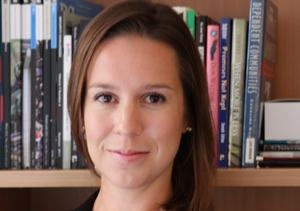Good to have a seat at the table
If Australia is truly to ''do what it said'', it needs bolder policy positions to take to the UN Security Council, writes Jeni Whalan.
If Australia is truly to ''do what it said'', it needs bolder policy positions to take to the UN Security Council, writes Jeni Whalan.

OPINION: It's a comfortable victory that Australia's diplomatic corps have little time to celebrate. In the early hours of Friday morning, the world's nations decided that Australia deserved a seat on the United Nations Security Council. But now that the campaign is won, Australia has vital interests to pursue in New York, which demand more than good storytelling, a past record, a generous aid budget and a seemingly endless photo album of Australian peacekeepers hugging small foreign children.
Australia ran a good campaign. From a standing start, the Department of Foreign Affairs and Trade's strategists achieved a remarkable feat by comfortably beating both Finland and Luxembourg in the first round of voting. That the secret machinations of the vote leant Australia's way is surely to the credit of our tireless diplomats and planners.
Backed by a growing aid budget, they built a narrative of Australia's global role designed to appeal to the key voting blocs of developing countries in Africa, the Caribbean and the Pacific. It told the story of good, honest, pragmatic Australian foreign policy - of a ''practical'' contributor that recognises the value of ideals, but is also prepared to roll up the national shirtsleeves when needed.
The campaign's tagline ''Australia, we do what we say'' provided an opening to speak with humility about the nation's proud contributions over the past six decades to peacekeeping, peacebuilding, development and humanitarian relief. DFAT's story highlighted Australia's proximity to developing countries and its commitment to working with the UN's smallest and most vulnerable members. Australia will make a difference, the campaign promised, for the small and medium countries of the world.
Of course, like all good narratives, we find in this a degree of requisite mythologising. More worrying is whether constructing the story became a higher priority at DFAT than getting policy right.
If Australia is truly to ''do what it said'', it needs better, more informed, more innovative and bolder policy positions to take to New York. When Julia Gillard addressed the UN last month, her speech - entitled ''Practical progress towards realising those ideas in the world'' - delivered the final refrain of DFAT's carefully composed campaign tune. But if the Prime Minister's speech is to be more than mere campaign rhetoric, Australia must get back to formulating serious policy contributions in New York.
The council's agenda is broad. During Australia's tenure, it will certainly include the worsening crisis in Syria, ongoing tensions between Sudan and South Sudan, the UN's role in Afghanistan during and after the transition of NATO-led operations, and oversight of the 16 peacekeeping operations deployed under Security Council mandate. In Mali, the growing power of militant groups linked to al-Qaeda in the Islamic Maghreb prompted the Security Council last week to adopt a French resolution paving the way for an African-led intervention.
These are big challenges. Undoubtedly, it is the permanent five members - China, France, Russia, Britain and the US - that ultimately determine the council's outcomes by virtue of their veto power. But Australia will have opportunities to lead: on issues of rule of law and disarmament, for example, and on the council's multiple sanctions committees. Australia's Pacific Islands neighbours will be hoping that Australia will lead on issues of climate security.
For inspiration, Australia might look back to 1990, when our diplomats didn't need a Security Council seat to produce a draft Cambodian peace proposal that broke the impasse in negotiations. The 155-page ''Red Book'' provided a substantive account of the roles, costs, people and processes required for a comprehensive Cambodian settlement. Far from the generic principles and motherhood statements that too often pass for UN contributions, this plan was remarkable in its specificity, a carefully researched resource document presenting realistic paths to peace in Cambodia - and without a photo in sight.
That Australia will take its place alongside 14 other Security Council members in January is a broadly good thing for our foreign policy. But Australia now needs to harness the energy and strategic prowess with which our diplomats waged the Security Council campaign for higher ends, to tackle the urgent threats to international peace and security for which the council has unique responsibility.
It needs in particular the serious investment of strategic planning resources within DFAT. It needs to promote open, rigorous debate about policy ideas and practice - not just those that cohere with Australia's campaign strategy. And it needs to let its public officials off the leash so they might engage in honest discussion, in and out of their departments, about what works, what doesn't and why.
Having a seat at the table might be important, but having something worthwhile to say is indispensable.
Dr Jeni Whalan is a lecturer in the School of Social Sciences at UNSW, specialising in peace operations, the UN and Australian foreign policy.
This opinion piece first appeared in The Canberra Times.